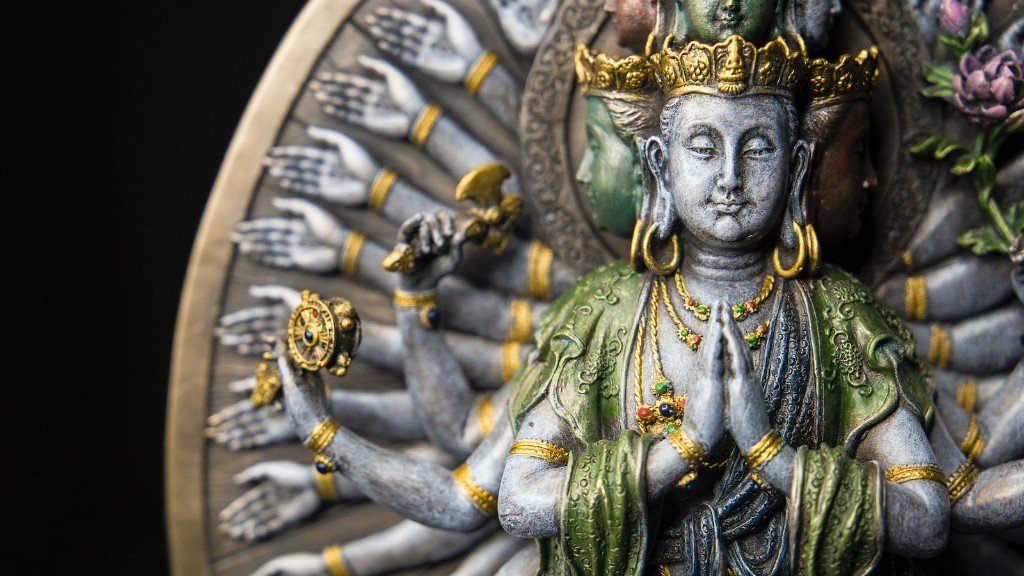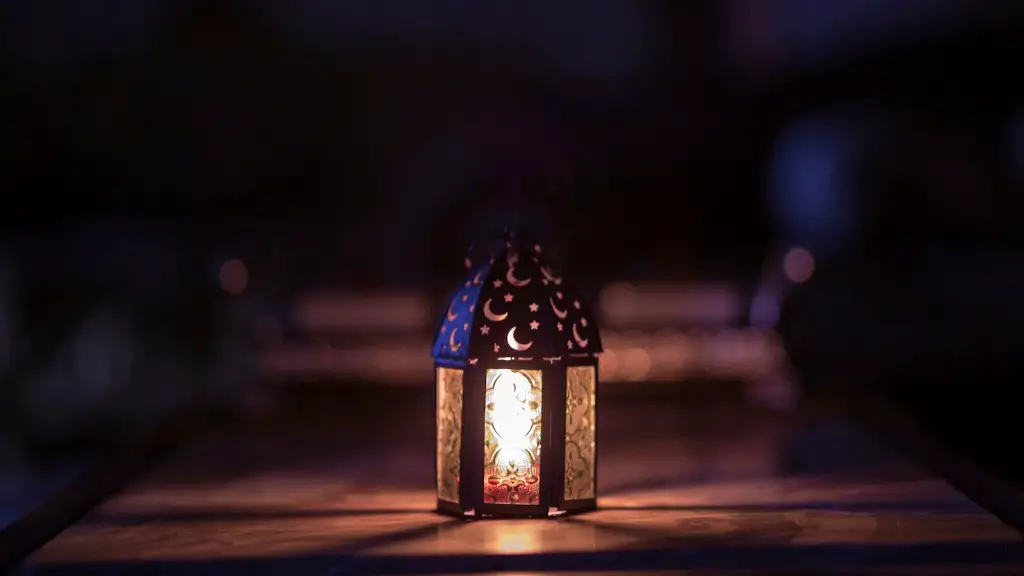Background
Judaism is an ancient monotheistic religion, characterized by a belief in one supreme God who is creator and universal ruler of the entire world and a single covenant – the Ten Commandments, given to the Jewish people by Moses. In addition to the Ten Commandments, the foundational core beliefs of the Jewish faith include observing the Sabbath, honoring one’s parents, and committing to an ethical lifestyle.
According to Jewish tradition, the Sabbath, or Shabbat as it is known in Hebrew, is the seventh day of the week and is set aside as a day of rest and spiritual contemplation. It is a day when one can step aside from the world and daily stresses, providing an opportunity to renew relationship with God and to reconnect with loved ones.
The Meaning of the Sabbath
The meaning behind the Sabbath is one of divine loyalty and respect. Since, according to Jewish belief, God created the world in six days and then rested on the seventh, honoring the Sabbath is a way to refrain from work and to honor the day of rest designated by God. These days the observance of the Sabbath is usually done in the home or synagogue, where people gather to share meals and recite prayers.
The Sabbath is marked from sundown on Fridays to sundown on Saturdays. During that time, the lights in the home are lit to signify the sacredness of the day, and traditional Jewish homes often abstain from any physical labor or other activities seen as “work.” In some communities, this also applies to the use of electricity or performing business transactions.
Spiritual Renewal
Sabbath observance in Judaism provides an opportunity for calming the mind, renewing the spirit, and giving thanks to God for bless-ings both large and small. Some choose to mark the occasion by spending time in meditation, study, and prayer. Others observe the Sabbath by gathering in fellowship with friends and family.
In recognition of the specialness of the day, many believers set aside special services, home meals, and even special clothing to wear. There is a special prayer book that is used, known as the siddur. It contains essential prayers and readings.
A Day of Joy and Rejoicing
The Jewish interpretation of the Sabbath places an emphasis on joy and celebration, rather than one of strict restraint. Many homes light two candles to mark the beginning of the Sabbath. Everyone in the family takes turns in blessing each other, beginning with the youngest, and then the meal is shared.
Families often enjoy traditional games, music, and stories that reinforce family togetherness. It is a day to honor the Lord and His word, to reflect on God’s promises and to give thanks for the freedom from daily labor.
Jewish Holiday Celebrations
The Sabbath is connected to other Jewish holidays throughout the year. In addition to Shabbat, which is observed each week, there is Passover, Shavout, Rosh Hashanah and Yom Kippur. Each of the holidays has distinct ways of celebration, but in each instance the idea of honoring God and setting aside special times for observance remain the same.
The Shabbat is a chance for the community to come together with prayer and joy. Generally, people are encouraged to visit the synagogue to recite blessings, share meals, and reflect on their Christian faith.
Foods for the Sabbath
Traditionally foods prepared in advance, known as cholent, are cooked and served on the Sabbath. This is done so that even though work of cooking is forbidden on Sabbath days, one can still enjoy warm and tasty types of dishes. These include roasted meats, grains, beans, fish, and stews. Fruits and cakes are also served, allowing the family to celebrate the specialness of the day.
Observance and Practice
Every Jewish family follows different rituals and customs when it comes to the Sabbath, depending on which branch of Judaism they practice, from Orthodox to Conservative and Reform Judaism. All branches share the common denominators of thanksgiving, rest, and reverence for God.
In recent times, some within the Orthodox and Conservative branches have started to experiment with new forms of observance, such as havurot (fellowship groups) and setting aside times for Torah study or communal prayer. These changes are bringing to the forefront ways to honor the Sabbath that are more relevant to the contemporary lives of Jewish people.
Sabbath Customs
As with all religious observances, the Sabbath involves customs and traditions which have been passed down throughout generations. These customs can vary greatly amongst different families and congregations, but some of the more common ones include covering the bread on a special tablecloth and using a Kiddush cup to sanctify the beginning of the Sabbath.
Different customs are also followed when it comes to winding down the Sabbath — the havdala ceremony, involving holy wine and the lighting of candles. Others end the Sabbath by singing the traditional hymn, “Eishet Chayil,” all of which helps to ensconce the Sabbath as a holy and joyous day of rest and fellowship.
Impact of the Sabbath in Everyday Life
For thousands of years, Jews around the world have observed the Sabbath. It is a day when families come together, enjoy rest from the stress of daily life, and devote time to the Lord. Today, celebrating the Sabbath carries increasing significance for many, as evidenced by the fact that it can be seen as a kind of spiritual refuge from the chaotic and often hectic world we inhabit.
Unlike other religious holidays, which usually come with their own special calendar events, the Sabbath and its observance are regular occurrences. Therefore, the Sabbath serves as an important reminder of faith, ritual and community in a world often plagued by divisiveness and stress.
Modern Take on the Sabbath
Over the years, many have favored a more modern take on the Sabbath and have embraced a range of activities such as cooking, hosting, and even shopping, albeit the pleasure shopping. Some have taken the modern take on the Sabbath and have embraced what might be seen as a ‘third way’. This ‘third way’ is defined as a modern interpretation of the Sabbath that has come to include activities and experiences that could often provide solace and wellbeing for our busy, modern lives. These activities can range from listening to soothing music, to group meditation or yoga sessions, or perhaps going for a leisurely stroll in the woods instead of gathering in the synagogue.
Social Justice and the Sabbath
For some, the Sabbath has become a powerful day for taking action for social justice. It is a day when people are reminded of the their role in protecting the rights of the marginalized and in bringing harmony and understanding to communities around the world.
Organizations such as Bend the Arc, which was founded in 2006 by professionals of the Jewish faith in order to put their faith beliefs into action, have made it their mission to organize and advocate on behalf of social justice while encouraging others to do the same.
Significance in the 21st Century
In today’s ever-changing world, Sabbath observance continues to be a recurrent and meaningful part of many families’ religious and cultural life. It is a day to rest, reflect and connect with each other and the environment, re-invigorate relationships, give thanks, and seek spiritual renewal.
The 21st century has changed the way the Sabbath is understood, particularly as some see it as a space to create meaningful experiences from carrying out acts of social justice, to simply unplugging from the daily cares of life for a mindful day of rejuvenation. As with all religious ceremonies, the Sabbath carries a special significance for all it touches, providing structure, stability, and security in a rapidly changing world.



